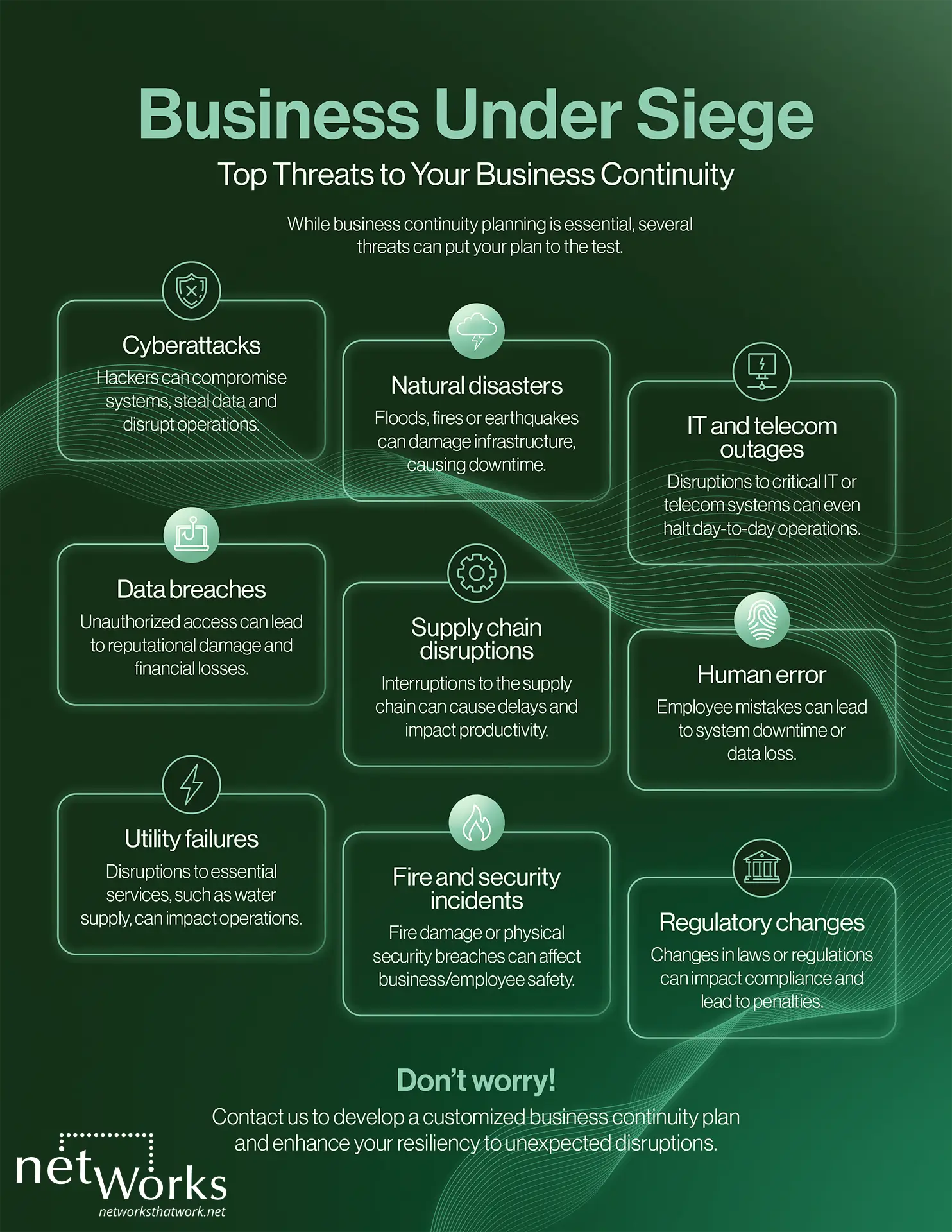
No matter the size of your business, the security of your data plays a crucial role in your ability to keep things running smoothly. From daily operations to major decision-making, your data is at the heart of everything you do.
But as your reliance on data increases, so do the risks. Cyberattacks and data breaches are not just inconvenient; they can seriously threaten the future of your business if not properly addressed.
Essential Steps for Data Protection
Fortunately, keeping your data secure is within reach—if you take the right steps. Here are some key strategies to protect your data and ensure business continuity:
Backups Are Your Safety Net:
Backing up your data regularly is a must, and it's smart to use a secure off-site solution. Cloud storage services from trusted providers offer an easy, reliable way to ensure your backups are always available. You can also use external hard drives or network-attached storage (NAS) devices as part of your strategy. The goal is to ensure that even if your primary systems go down, your essential data is safe and ready to restore.
Encryption: Keep It Locked Up Tight:
Encryption is like putting your data in a virtual vault. It protects your information whether it's in transit or just sitting in storage. By using strong encryption methods, you make it nearly impossible for unauthorized individuals to access your sensitive data. Encryption scrambles the information, and only those with the correct decryption key can make sense of it.
Control Access to Critical Data:
Not everyone needs access to everything. By implementing strict access controls, you can limit who can view or change sensitive data. Role-based access control (RBAC) is a great way to assign permissions based on job roles. Adding multi-factor authentication (MFA) provides another layer of security, ensuring that even if someone gets hold of a password, they can’t log in without an additional verification step.
Remote Work Security:
With more teams working remotely, it's crucial to secure those connections. Here’s how to make sure remote work stays safe:
- Utilized properly updated and managed firewall solutions equipped with network traffic inspection and controls to protect the business environment
- Encourage strong password policies to keep unauthorized users at bay. Passphrases can add an extra layer of defense. Consider business-wide password vault for more secure password management
- Add to those strong passwords with MFA (Multifactor Authentication) across all accounts allow for that level of security
- Consider cloud hosting of applications which can give organizations more remote flexibility along with higher levels of security in their environments.
- Encourage strong password policies to keep unauthorized users at bay. Passphrases can add an extra layer of defense.
Be Ready with an Incident Response Plan:
If a data breach or cyberattack occurs, you need to have a plan. This should include:
- Clear roles and responsibilities so everyone knows what to do.
- Communication protocols to quickly inform employees, clients, and any relevant authorities.
- Well-defined recovery procedures to get systems back online and minimize downtime.
Continuous Monitoring Keeps You Ahead:
By actively monitoring your systems with tools like Security Information and Event Management (SIEM), you can detect potential threats before they escalate. This proactive approach helps you respond quickly and prevent serious damage.
Training Your Team:
Your employees are your first line of defense. Regular training on topics like phishing, social engineering, and device security can go a long way in protecting your business. When employees know what to look out for, they’re better equipped to prevent breaches.
Ready for the Next Step?
Not sure where to begin with your data security plan? We’ve got you covered.
Our team can evaluate your current security measures, identify any vulnerabilities, and help you develop a customized plan to protect your business and ensure continuity, no matter what challenges arise.
Get in touch with us today to schedule a consultation and safeguard your business's future.

